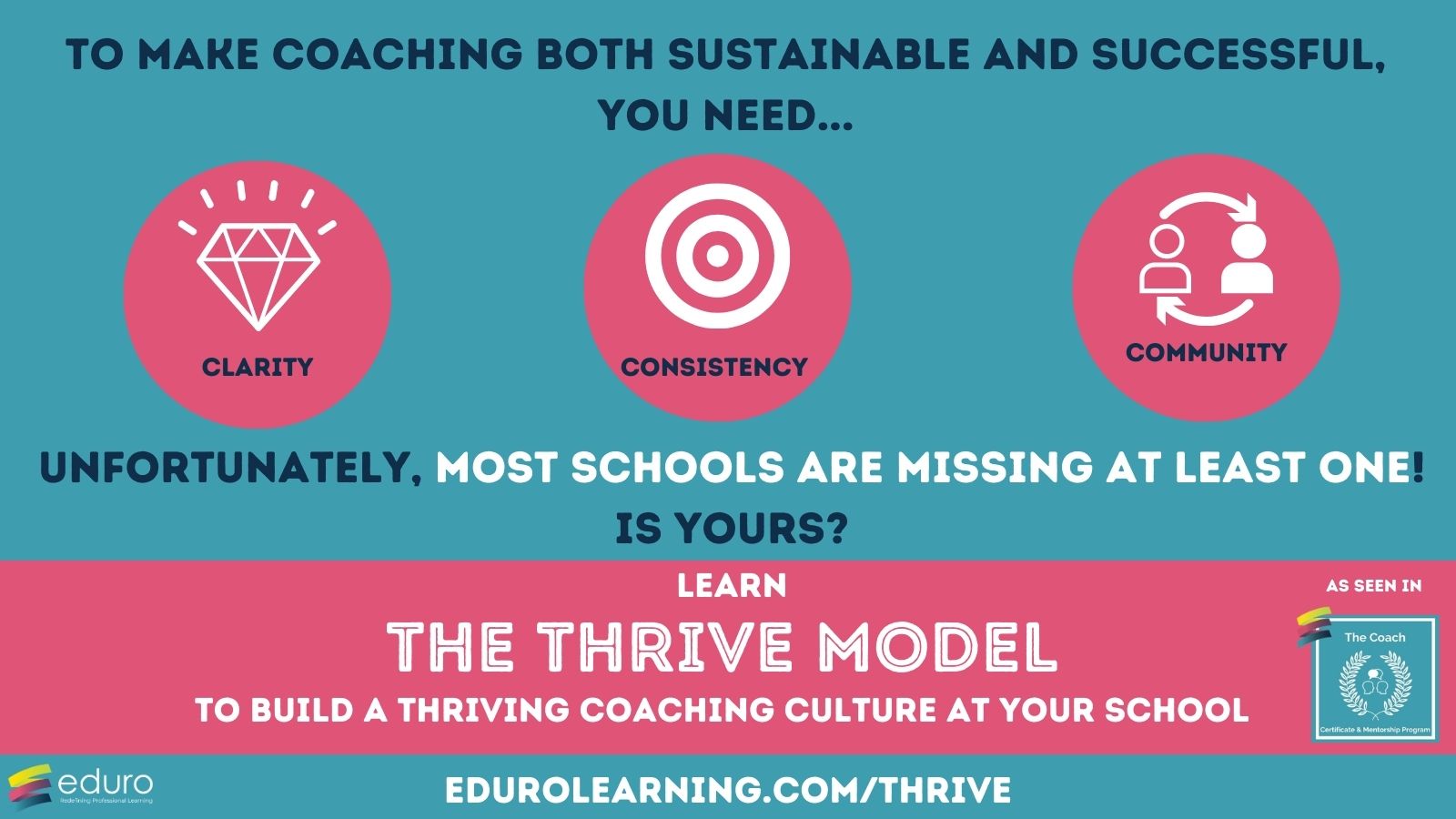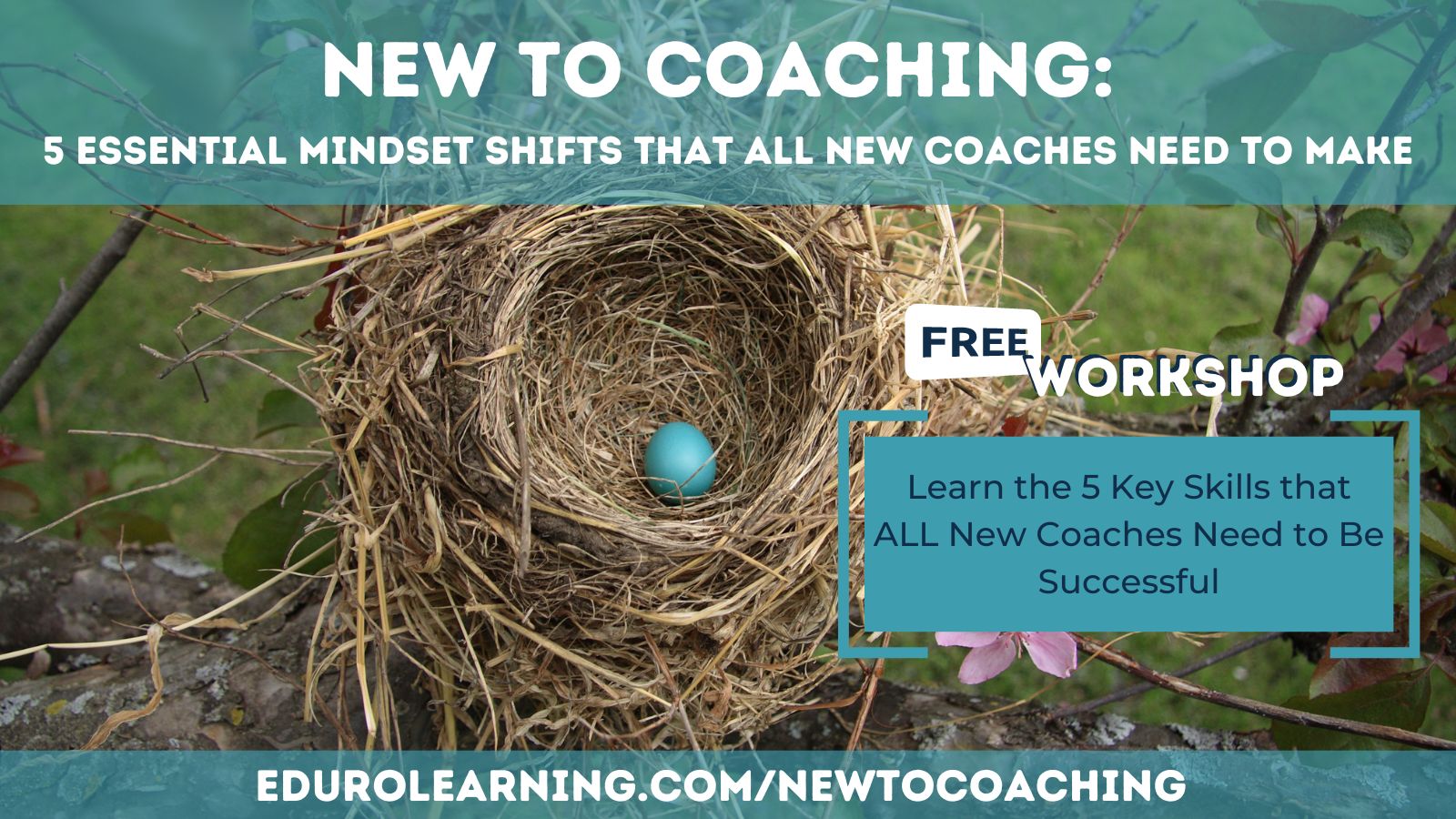Most schools hire coaches because they believe instructional coaching will improve student learning. While this is true in many situations it’s not the ONLY reason to hire coaches.
In fact, I’ve had so many conversations with coaches and school leaders lately about the hidden value of instructional coaching that I ended up writing a whole book chapter about it last spring (get on my mailing list to get all the details about that!)
The thing is, when coaching is done right, coaches can do so much MORE than “just” improve student learning.
If you’re already an instructional coach, you probably already know a lot of what I’m about to share, but being able to share that message so you can advocate for coaching is really important. Whether you already have a coaching program or not, this video is going to help you articulate the hidden value of instructional coaching – and it goes way beyond improving student learning!
Before I jump in with the list, I want to highlight 2 things.
When I’m talking about instructional coaching, I mean: a formal or informal process that:
- is non-evaluative and confidential (and not tied to appraisal)
- starts with teacher goals and is invitational for teachers to access
- involves a cycle, structure, or system of self-reflection
- operates close to the classroom, with observation, co-teaching, or modeling as a central part of the experience.
And, for this kind of environment to thrive there are specific structures that need to be in place in your school (that’s why I designed the Thrive Model for Instructional Coaching Success).
Defining the work that coaches do is essential in building a thriving coaching culture (see my previous post on the importance of clarity in your role). If you’re curious to learn more about the Thrive Model, get all of our free resources at https://edurolearning.com/thrive!
If you’re a coach right now, or you want to be a coach, and you’re curious about what kind of structures make coaching successful (and how you can be a great coach while building those structures), this is exactly what we do in The Coach Certificate and Mentorship Program). You can find out about the program at edurolearning.com/coach Global cohort registration opens once a year, so don’t wait!
EXPLORE THE THRIVE MODEL
Are you working on building a coaching culture in your school setting?
To make coaching both sustainable and successful, you need clarity, consistency, and community.
Unfortunately, most schools are missing at least one! Is yours?
Use the Thrive Model to find out!
Developed after working with hundreds of coaches and leaders in international schools around the world, the Thrive Model incorporates both the macro view of a coaching program, and the micro view of a coaches practice, to bring together the three essential elements to make coaching both sustainable and successful.
Explore all of our resources about the Thrive Model at edurolearning.com/thrive

The 5 Reasons Coaches are Essential
1️⃣ : Their viewpoint
Instructional Coaches have a unique viewpoint: seeing the micro (individual classroom & teacher) as well as the macro (division or school wide)
Instructional Coaches are one of the only (if not the only) non-evaluative positions in a school with this view. They have the time & the skillset to take the big picture and apply it at the classroom level, as well as provide insight into the individual teacher or department practice in school or division wide planning.
2️⃣ : Their expertise
Instructional Coaches are experts in pedagogy and andragogy: knowing how to teach children and adults
Instructional coaches may also have subject area expertise, but their superpower is expertise in instructional strategies, and their ability to support teachers in all subject areas and grade levels. They understand how adults learn so they can support them in bringing high impact pedagogical strategies to each classroom.
3️⃣ : Their ability to create a sense of belonging
Instructional Coaches are supremely skilled at making teachers feel valued, seen and respected, and can have a huge positive impact on school culture.
Through deep listening, respecting & valuing teachers’ experience and expertise, instructional coaches help teachers recognize their strengths and make professional growth feel like an “intellectual spa”. Instructional coaching, when implemented & supported successfully, can help create a growth mindset culture, a sense of belonging and community.
4️⃣ : Their informal leadership
Due to their unique viewpoint, Instructional Coaches are in a position to support & influence both teachers and school leaders.
Instructional Coaches have a skillset that enables them to empower both teachers & leaders to grow. With their unique viewpoint they can see the connections between teacher & leadership growth. They can see where professional learning needs to happen to meet school goals and they have the potential to strategically influence the development of school wide professional learning.
5️⃣ : Their ability to connect teachers
With their macro lens, Instructional Coaches have the potential to connect teachers to each other beyond departments, grade levels and divisions.
When Coaches can see the ways that teachers in different divisions & subject areas can support each other, they can intentionally work towards building capacity among teachers, thereby spreading the potential work of coaching far beyond the exclusive work of coaches.
I’d love to hear what you think! Do you agree? Disagree? Leave a comment and let me know!
These are so important because coaching can do so much more than “just” improve student learning. When schools build structures to support coaching, and empower coaches to do their job, they create communities of learners, who feel a sense of belonging.
I’d love to hear what you think! Do you agree? Disagree? Leave a comment and let me know!
These are so important because coaching can do so much more than “just” improve student learning. When schools build structures to support coaching, and empower coaches to do their job, they create communities of learners, who feel a sense of belonging.
Watch the Video
Ready to make an impact through YOUR coaching this year?
If you’re ready to be more intentional and strategic in your coaching role and your school or organization – or if you’re new to instructional coaching and you’re curious about getting started, join us for one of our courses for coaches!
One of the things we’re most proud of here at Eduro is that there’s no one-size-fits-all learning – you always have choice and voice in how you learn with us. Today’s video highlights one of the key themes that you’ll find in three of our programs, and if you’re curious to take your learning deeper, we have three great options for you.
New Coaches:
If you’re just getting started as a coach, and you want to learn how to make these mindset and skillset shifts, watch our New to Coaching Workshop, which will also tell you all about our brand new course, Getting Started as a Coach.

Experienced Coaches:
If you’re already a coach & you want to think about being more intentional & strategic in your practice, watch our workshop on the Thrive Model for Coaching Success which will help you evaluate your program to see where you may have room to grow – and help you decide if our year-long mentorship and certification program, The Coach, is right for you, right now

Just like all our learning experiences, the content in both of these courses is self paced so you get access to everything immediately – but you get so much more: when you join the course, you get access to our #coachbetter global community with optional group coaching calls at various time zones to meet & connect with other coaches PLUS private office hours with me to get all your questions answered & work through anything coaching related in your unique school context.
Wherever you are in your coaching journey, we can support you!
For All Coaches
Connect with us!
- Subscribe to the podcast iTunes | Spotify | Stitcher
- Follow us on social media: Twitter | Instagram | LinkedIn
- Join our #coachbetter Facebook group
- Explore our courses for coaches

Recent Comments